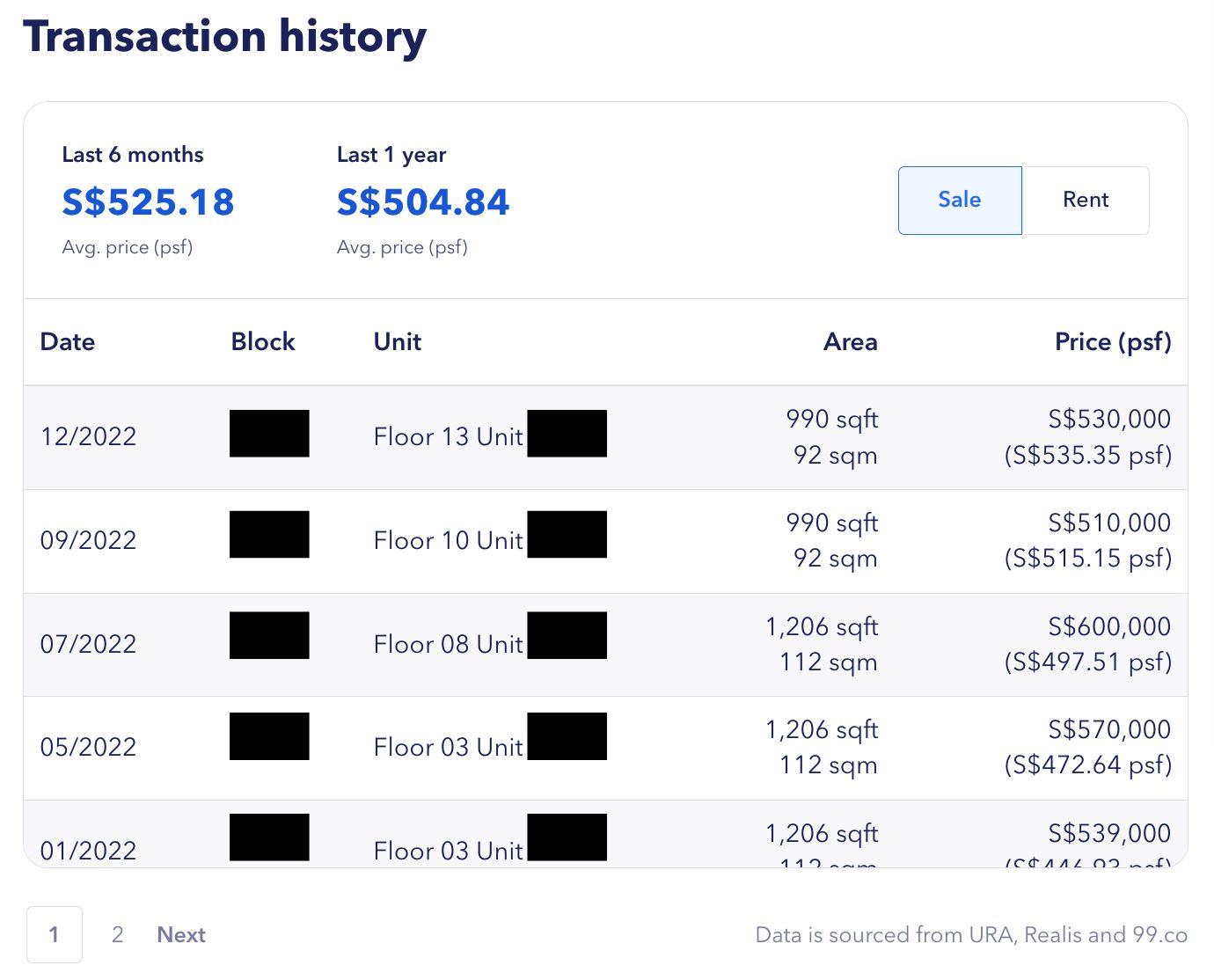If you’re a first-time home buyer or seller, negotiating property prices may be a little tough.
So we at 99.co would like to introduce you to a guideline: the more awkward conversations you are willing to have, the better a bargain your property can be.
Most Singaporeans are too shy to negotiate aggressively, but a thick skin really does account for big gains. For your convenience, we’ve written down the words to use when you do go about negotiating property prices.
1. “The other units nearby are going for S$x.”
When negotiating property prices, be the first to call out a price. This is called anchoring. Whether you’re a buyer or seller, even if your price is not accepted, it allows you to set the general range. In fancy negotiating terms, this is known as setting the Zone of Possible Agreement (ZOPA).
If you open with “Some of the other units here are selling for S$1.2 to S$1.3 million”, you are setting the ZOPA within this price range. If you allow the other person to mention the price first, you have to bargain within their range instead.
As a buyer, if you want to bargain for much less than the surrounding prices, you can try “I’m also considering another unit nearby, that seller wants (insert number that is lower than the average).”
However, check surrounding prices (you can check for recent transaction prices on 99.co) and beware of offering too low an anchor. 
Scroll down a listing on 99.co to find the transaction history in the block. If you start by mentioning a price that is too low and the seller accepts it right away, then you’ll lose the possibility of going lower.
Likewise, as a seller, don’t set an asking price that’s too low for the buyer.
2. “This is a beautiful house. How come you want to sell?”
This phrase serves two purposes. First, it lets the buyer know the seller’s situation. Someone who is migrating in a few months will have a greater sense of urgency when selling.
On the other hand, someone looking to downgrade because their children have moved out, and the house is too big to clean, is probably not desperate to sell. The less urgent it is for the seller, the lower the buyer’s odds of getting a bargain.
The second reason is psychological. As a buyer, you want the seller to vocalise the reason(s) why they want to sell. Most people want to be consistent with what they say, so they are more likely to follow through on their own reasoning.
3. *Dead silence*
Silence is a powerful tool to put the ball back in your court. Right after the seller makes a counter-offer, just look thoughtful and keep quiet. If the seller is an amateur, they will usually feel uncomfortable and try to justify the price.
The more a seller does this, the more insecure they tend to become. As a buyer, this makes your subsequent offers more likely to be accepted.
If they are experts or seasoned property agents though, they will start talking about something else. They may also ask a question to make you speak, so this may not work on professionals and veterans when negotiating property prices.
This is also why whether you’re a buyer or seller, we recommend hiring a property agent as they’re more seasoned in negotiating prices.

4. “Do you have any issues with the house?”
This one is a tip for sellers. It’s quite easy to predict what the buyer will object to. It always falls into four categories:
- Price
- Amenities
- Maintenance issues
- Facing of the unit (eg. west-facing)
Have a justification or defence prepared for each of these. If the buyer does not bring it up (some of them are shy and will vote with their feet), ask if they have issues. After you respond to their objections, follow up with “Is there anything else that’s making you hesitate“?
Buyers become a little more pliant when they run out of viable objections.
5. “Which are the recent renovations?”
Ask this question when you can see the property is old, and there hasn’t been much in the way of renovations. This is a good prelude to making a counter-offer, as it justifies you negotiating property prices at a lower rate.
Don’t be brusque and yell, “Wah, so old also cost so much!” That will cause the seller to decide you’re a jerk, and find another prospective buyer.
Renovated units for sale

4
4

3
2

3
2

3
2

3
2

4
2

4
3

3
2

3
2

2
2

3
2

4
3

3
2

2
2

3
2

3
2

3
2

3
2

3
2

3
2

3
2

3
2

3
2

4
3

3
2

3
2

3
2

3
2

3
2

3
2

3
2

3
2

3
3

4
3

3
2
See all HDB flats >

2
1

3
2

4
5

2
2

3
3

4
3

2
2

3
3

4
2

0
1

4
2

1
1

3
3

1
1

4
2

2
2

1
1

3
2

2
2

2
2

3
3

3
2

3
3

0
1

2
2

4
5

4
5

2
1

2
2

2
2

4
3

3
2

2
2

2
1

3
2
See all Condos >

5
5

6
4

6
5

4
5

5
5

5
6

4
3

4
5

5
4

3
4

4
2

5
6

5
6

6
7

6
6

4
4

4
5

5
5

5
8

4
2

5
6

5
6

6
7

8
8

6
5

5
5

4
4

6
5

5
6

10
10

7
4

5
7

6
5

4
5

6
5
See all Landed homes >
6. “Thanks for dropping by / having me over, that really made my day because…”
Text this about an hour after the negotiations, whether you’re a buyer or seller. This will guilt tri…uh, make the other person feel good about whatever offer is left on the table.
For example, if you’re a seller, you could text: “Hey X, thanks for dropping by. That really made my day because I was afraid I wouldn’t find someone who can really appreciate my old home.”
This also makes people feel inclined to deal with you; they don’t want to let you down if they like you, and that can be a decisive factor.

7. “Hey, since you’re (xyz), could you do me a small favour and …”
This bold move tries to capitalise on the Benjamin Franklin effect. It’s a psychological phenomenon, in which asking people for a favour prompts them to like you more (Try it: find someone who dislikes you and plead with them for a favour, there is a high chance they will be more positive toward you in future).
In order to do this, you need to spend some time building rapport first. Then make the request when there is at least a cordial acquaintance established. Ask them to introduce you to a prospective client or something, whatever is easy for them and within the bounds of social etiquette.
For reasons too long to get into here, asking someone for a favour makes them like you more. It also flicks a switch that creates a more personal relationship, which can lead to accepted offers.
Ready to sell your home? Let us help you connect with a property agent to help you negotiate for a higher price.
If you found this article helpful, 99.co recommends 5 genius home staging ‘tricks’ to rent out or sell property quickly and Here are 5 weird things buyers look for.
The post 7 things to say when negotiating property prices appeared first on .


